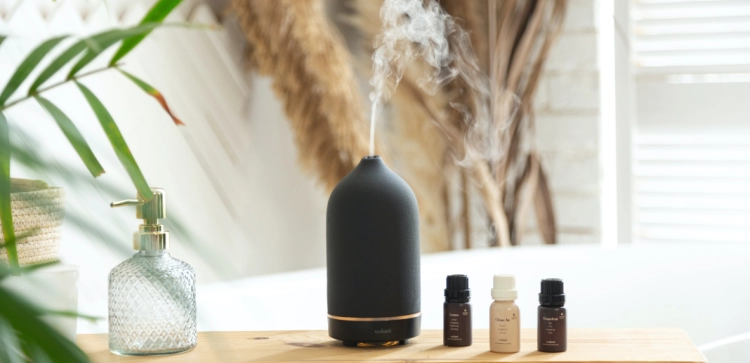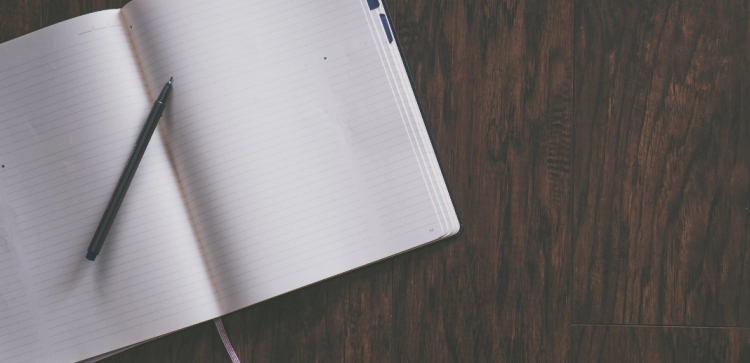




Divuni Mindfulness
If the fridge is under 8-10 years old, a repair is usually worth it, especially if the issue is minor like a faulty thermostat or compressor relay. For older units, consider the repair cost—if it’s over half the price of a new fridge, replacement might be the better option. An appliance repair professional can diagnose the issue and help you decide.
They are so angry, so violent, so aggressive. You meet people in the streets, driving, walking, and they are so angry, so ready for violence.
I always try to tell myself that there is a reason for this, that I dont know what they have been through or what kind of day they are having, that maybe they are just so unhappy. But, then i think, why? Why are so many people so unhappy?
Are all of these people that I encounter so unhappy that it causes them to act like this?
Things can be so simple, so easy, so much less stressful, why do we make it worse?
I would actually love to live without it. At least for certain periods of time.
It's actually less about the internet, and more about technology, and what it has done to society.
At the dinner table - everyone is on their phone.
After dinner - everyone is watching TV or on their phone.
Long drives where you, the driver, would like someone to talk to - others in the car are on their phone.
You try to talk to someone while they are on their phone - good luck! They won't even hear you speaking!
This is something that really makes me want to take more than a few steps back and away from people, and society. Seeing how everyone is so addicted to their phones and social media is just awful for me.
I also have times where I am on my phone, maybe I'll play a game, talk to friends, read articles, but it doesn't consume me. I am not addicted to it. I don't spend hours on it. If someone talks to me, I put it down.
When I am with a partner, and they are on their phone and I mention something about it, only then do they put it down and then say "ok, what do we talk about?".
Verbal communication has been demolished by phones. Couples have difficult time having proper conversations with each other over lunch, or at any time.
I can go on about this, but the answer to the question is yes, gladly.
Sitting on a block, pillow, or anything slightly elevated makes it easier to balance while sitting cross legged with a straight back, and makes it a little bit more comfortable.
I usually sit on a yoga block, which I find for me is the perfect amount of elevation. It allows me to sit comfortably with a straight back and with much less effort. This allows me to actually sit and meditate for longer.
Yes, meditation can be a helpful tool for managing ADHD symptoms. By practicing mindfulness meditation, individuals with ADHD can learn to develop greater awareness of their thoughts, emotions, and bodily sensations, and cultivate better focus, attention, and self-regulation skills.
Meditation can help to train the brain to become less distracted and more focused. By practicing meditation regularly, individuals with ADHD can improve their ability to concentrate, control impulsivity, and manage their emotions.
Research has shown that regular meditation practice can lead to improvements in working memory, cognitive control, and overall executive function in individuals with ADHD. Meditation can also help to reduce stress and anxiety, which are common co-occurring conditions in people with ADHD.
It's important to note that while meditation can be helpful for managing ADHD symptoms, it is not a substitute for professional treatment. If you are struggling with ADHD, it's important to seek guidance and support from a mental health provider who can provide you with individualized treatment and support.
Mindfulness can be a helpful tool for managing anger. By practicing mindfulness, you can learn to become more aware of your thoughts, feelings, and physical sensations in the present moment. This can help you to identify triggers and patterns that may be contributing to your anger, and to develop a greater sense of self-control and emotional regulation.
Mindfulness can also help to reduce stress and promote relaxation, which can help to reduce feelings of anger and irritability. By learning to stay present in the moment and respond to situations rather than react impulsively, you can develop greater control over your emotions and reduce the intensity and frequency of angry outbursts.
While mindfulness is not a cure for anger, it can be a helpful tool for managing and reducing feelings of anger and irritability. If you are struggling with anger management, it's important to seek professional help from a mental health provider who can provide you with additional support and guidance.
Yeah, meditation can be a helpful tool for managing depression. It can help to calm the mind, reduce stress, and improve mood. By practicing meditation regularly, you can develop a greater sense of self-awareness and mindfulness, which can help you better manage negative thoughts and emotions associated with depression.
Meditation can also help you to develop a greater sense of compassion and empathy, both for yourself and others. This can help you to feel more connected to the world around you and develop a more positive outlook on life.
Overall, while meditation is not a cure for depression, it can be a helpful tool for managing symptoms and improving overall mental health. It's important to note, though, that if you are experiencing symptoms of depression, it's important to seek professional help from a mental health provider.
Journaling can be a great way to help manage depression. When you're feeling down, it can be hard to know where to start or how to get things off your chest. By writing down your thoughts and feelings, you can begin to make sense of them and work through your emotions.
One of the main ways that journaling helps with depression is by providing an outlet for negative emotions. By writing down negative thoughts and feelings, you can release them from your mind and process them in a safe and non-judgmental space.
Journaling can also help you identify patterns and triggers that may be contributing to your depression. By tracking your moods and emotions over time, you can begin to see how different situations and experiences impact your mental health. This can help you identify areas where you may need to make changes, such as setting boundaries, seeking support from others, or making adjustments to your lifestyle.
Journaling can help you develop a more positive outlook on life by focusing on gratitude and positive experiences. By writing about things that you're grateful for or moments of joy and happiness, you can shift your focus away from negative thoughts and feelings and begin to build a more optimistic perspective.
Journaling can be a helpful tool for improving mental health in a number of ways. Here are a few ways that journaling can be beneficial:
- Reducing stress and anxiety: Writing about your feelings and emotions can help you process and release them, which can reduce feelings of stress and anxiety.
- Improving mood: By focusing on positive experiences and gratitude in your journal, you can shift your perspective and improve your overall mood.
- Enhancing self-awareness: Writing about your thoughts and feelings can help you develop a deeper understanding of yourself, your emotions, and your reactions to different situations.
- Identifying patterns and triggers: By tracking your moods and emotions in your journal, you can identify patterns and triggers that may be contributing to mental health issues.
- Providing a sense of control: Journaling can give you a sense of control over your thoughts and feelings, and provide a space to reflect on and work through difficult emotions.
Yoga is a great form of exercise that can help you build strength, flexibility, and balance, but it may not be the most effective way to build large amounts of muscle mass.
While yoga does use your body weight as resistance and can help build lean muscle over time, it generally doesn't provide the same level of muscle-building stimulus as more traditional strength training exercises, such as weightlifting. However, certain types of yoga, such as power yoga or hot yoga, may provide a more intense workout that can help build muscle more effectively.
That being said, the amount of muscle you can build with yoga will depend on a variety of factors, including your body type, your fitness level, the specific types of yoga you practice, and the frequency and intensity of your practice.
If your goal is to build large amounts of muscle mass, you may want to consider incorporating additional strength training exercises into your routine, such as weightlifting or bodyweight exercises. However, if you're looking for a low-impact, full-body workout that can help you build functional strength and flexibility, yoga can be a great option.
Trying to meditate for 30 minutes each time can be challenging, especially if you're new to the practice. However, it's not necessarily too much if you're committed to building a regular meditation practice and are willing to work up to longer sessions over time.
If you're just starting out, it's generally recommended that you begin with shorter meditation sessions, such as 5-10 minutes, and gradually work up to longer sessions as you become more comfortable with the practice. This will allow you to build your concentration and focus gradually, and avoid feeling overwhelmed or discouraged.
If you're finding it difficult to sit for 30 minutes at a time, you may want to consider breaking your meditation into shorter sessions throughout the day. For example, you could meditate for 10 minutes in the morning, 10 minutes at lunchtime, and 10 minutes in the evening. This can help you build your practice gradually and make it more manageable.
The amount of time between meditation sessions depends on your personal preference and schedule. Some people may meditate once a day, while others may meditate several times a day.
It's generally recommended that beginners start with shorter meditation sessions, such as 5-10 minutes, and gradually work up to longer sessions as they become more comfortable and experienced with the practice. It's also important to listen to your body and mind, and adjust the frequency and duration of your meditation sessions based on your individual needs and goals.
Ultimately, the goal of meditation is to cultivate a sense of mindfulness and presence in your daily life, so you may find it helpful to incorporate short mindfulness practices throughout your day, such as taking a few deep breaths or pausing to appreciate the present moment.
Journaling and bullet journaling are both forms of personal writing, but they differ in terms of their structure, purpose, and content.
Journaling is a form of personal writing that can take many different forms, but generally involves free-form writing about your thoughts, feelings, experiences, or observations. The content and structure of a journal can vary widely, depending on the individual's goals and preferences, and there are no strict rules or guidelines to follow. Journaling can be used as a tool for self-reflection, personal growth, creative expression, or simply as a way to record daily events and memories.
Bullet journaling, on the other hand, is a specific method of personal organization and planning that uses a system of bullet points and symbols to track tasks, events, goals, and other information. The structure of a bullet journal is highly organized and customizable, typically involving a system of index pages, monthly and weekly spreads, and collections of related information. Bullet journaling can be used as a tool for time management, productivity, goal-setting, and personal growth.
Journaling can be a helpful technique for managing anxiety in several ways. Firstly, it provides a safe space for you to express and process your anxious thoughts and emotions without fear of judgment or repercussion. By putting your thoughts on paper, you can gain a sense of control over them, which can help to reduce their intensity and frequency.
Additionally, journaling can help you identify and challenge negative thought patterns and cognitive distortions that contribute to your anxiety. By recording your thoughts and examining them objectively, you can begin to identify patterns in your thinking and challenge any unrealistic or unhelpful beliefs that may be fueling your anxiety.
Finally, journaling can serve as a grounding technique to help bring you back to the present moment when you are feeling overwhelmed or anxious. By focusing on the act of writing, you can anchor yourself in the present and reduce the impact of anxious thoughts and feelings.
Journaling can be an effective tool to help manage stress in several ways. Firstly, it allows you to express and process your emotions and thoughts in a safe and non-judgmental way. Writing down your worries and concerns can help you gain clarity and perspective on the situation, which can in turn reduce the intensity of your stress.
Additionally, journaling can help you identify patterns in your thoughts and behaviors, which can enable you to make positive changes in your life. By tracking your moods, energy levels, and stress triggers, you can gain insight into what factors contribute to your stress and take steps to avoid or manage those triggers in the future.
Finally, the act of journaling itself can be a calming and meditative practice, allowing you to focus on the present moment and reduce your anxiety. Overall, journaling is a simple yet powerful tool that can help you cope with stress and improve your emotional well-being.
It's one thing to go on a journey of self-discovery, which can be very difficulty in itself, but actually accepting what you find throughout that journey, or at the end of it, can sometimes prove to be the hardest part. This is something that I feel many people don't take into consideration or don't realize, that at some point, they will be faced with some sort of clarity, and that this new piece of information about their identity may just need to be accepted.
I feel like I have been at this point as well, where I got to a place on my journey that I came to some very clear understandings, but, I kept searching for other answers, instead of accepting what was right in front of me.
The reason for this I do not know, maybe it's my sub-conscious not wanting to accept what I found, or maybe it's me being blind to the truth, maybe because it is too hard to consciously deal with.
Has anyone else ever felt this way?
I can say that journaling has really helped me in my life. Not just journaling though, but generally writing things down instead of just thinking about them.
When I am faced with a puzzle, problem, or anything I am having difficulty understanding or solving, I write it down. I start writing things down and exploring what I understand out of the situation, what may have caused it, the consequences, solutions, and anything else I can think of.
This is the same way I journal actually. I write my thoughts down, and continue exploring them, asking myself more and more questions.
I use this for my personal life when I am facing difficult situations, and also for my professional life when I need to solve a difficult work related issue.
So for me, journaling is 100% worth it. It really has helped me make sense out of things in my life, and to improve things that I was stuck with for a long time.
I do find it difficult to keep up with this habit at times, I have an issue of devoting time to the things I know will help me, but, I am certain that if I would actually make a habit out of journaling, and do it more often, my life would be somewhat less difficult.
Journaling prompts are ideas that help you better focus your attention on what to write, while also giving you some guideline and inspiration. Common prompts for journaling are usually in the form of questions, such as:
What am I feeling today?
How do I want to feel instead?
Other prompts that are not in the form of questions could be:
List three things you appreciate about yourself.
Reflect on a moment of abundance in your life.
There are hundreds of prompts, you can also make up your own. There isn't any rule or specific prompts that should be used, they are just meant to help guide you and give you better focus on what to write.
I personally have some trouble trusting apps with such personal information about myself. It's one thing to put in your email and phone number, or even credit card, but it's entirely different to put in all of your most private thoughts, feelings, and emotions.
You never know what the apps company does with this information. I can understand the positives and benefits of journaling with an app, especially if they can sort of analyze the journal entries and show you information such as things that trigger you or things that cause you stress, or other insightful things, but even with this, I still could not feel comfortable with it.
Journaling for me is probably the most private thing I can do, it's the most private time of my life that I do not share with anyone, nor do I want to. So having all of the things I write, on my phone, in an app, on the internet, is just not something I would even consider. Even if it's not on the internet, the fact that it is on a phone, or digital device that is hackable, is just not something I would be comfortable with.
I found that staying busy really helps take my mind of things, especially unwanted thoughts.
Meditation and mindfulness hasn't always worked for me, in these cases I tend to try to stay as busy as I can, just to not think about things.
I don't know how healthy this is, or if it's a good approach, but sometimes it's the only thing that helps.
Meditation and being mindful of every time your mind wanders off, to try and catch it and revert yourself, reverting your mind back to the present moment.
Journaling and writing down intrusive thoughts can help you better understand them and their trigger, and take control. By learning what triggers you, when the triggers occur, what causes them, and how you react to them, you can learn how to take control and, with time, overcome OCD.
Journaling is a great tool for figuring these things out. Journaling slows down your mind and allows you to really inspect each thought you are going through and writing down. This allows you to understand them at a much deeper level. This deep level of learning can help you expose triggers, and can show you a clearer way of how to deal with these triggers.
- Don't judge yourself, your journal is for you, not for others.
- Don't try to make it perfect, allow yourself to make mistakes in spelling and grammar.
- Don't copy other people's writing styles. Write in your own way, however it comes out.
- Don't force yourself to write, not every day and not a certain amount of words/pages.
- Don't let journaling take over your life or become an obsession.
- Find a spot you feel comfortable in, and that you won't be interrupted.
- Use a pen and notebook that you enjoy using.
- Don't just write down things that happened, reflect on them, analyze them, try to understand them.
- Make journaling a habit by doing it at a scheduled day and time, but don't be too strict.
- Journal with an open mind, allow your thoughts to flow, and explore even the silliest ideas.
Many therapists recommend to their patients to start journaling, or to continue journaling if it was a practice they had in the past. This is, of course, if the therapist and the patient feel it would benefit the patient and their therapy.
Journaling may not be for everyone, but during therapy, a therapist can understand if journaling is worth trying, and if so, they can also give guidelines and items to focus on while journaling.
Journaling is a great practice to supplement therapy, but it is not a substitution to therapy. Many therapists suggest to their patients to start journaling if it is something that they believe they will benefit from. They also provide guidelines and further help with the practice, and even go over the notes during their next therapy session.
Journaling can be a powerful tool, and it can really help make a big difference, but it cannot be emphasized enough that journaling is not a substitute for therapy, but it can be an excellent supplement to it. If you are in therapy, consult with your therapist. Ask them what they think about it, and they will most likely be able to give you instructions or things to focus on while journaling.
The first step is to find a journal that you will enjoy writing in. This can either be with an actual physical journal, or on a device if that is what you prefer, though, I recommend an actual journal of some kind. This is very important, as if you do not like what you are writing in, it is very likely that you will not enjoy writing in it either, and you probably won't.
The next step is to find some time to be alone, and a place you can be alone and uninterrupted in. Since journaling is a very personal practice, one where you are getting out what ever is on your mind and what ever you are feeling, it is recommended to find a very private place where people will not bother you.
Now, it's time to actually write. You can start writing, literally, what ever you want. I like to ask myself why I am even journaling, and to write that answer down. That question usually leads me to further questions. Find what works for you, ask different questions to help get your thoughts going, or, if you are having a bad day, write about that. Try to explore the things you are writing down, what they mean to you, your reaction to them, and anything else that you feel and that is in your mind.
It is important to understand that journaling should not be forced. You may find that sometimes, you will sit down to journal, but won't actually have anything to write down. What many people do in this situation is to force themselves to come up with thoughts to write down. This is not an efficient way to approach journaling, as you can get very tired of this practice very quickly.
You do not have to journal every day, and you do not have to write a whole page each time. Even the habit of sitting down and taking out your journal can help get you in a better mood. If all you have to write is "I had a good day", then that is all you need to write.
Journaling can have many benefits, such as helping to process emotions, better understanding difficult situations and how to handle them, providing a creative outlet, and helping to boost self-confidence and self-esteem.
Those are really just a few of the benefits. One of the true powers journaling has, is how easy it is to start doing this. All you really need is a pen and paper, and to start asking yourself questions that get your thoughts flowing.
Journaling is a practice, and like other practices, it can take time and patience to get better at, but once you find your way, the benefits this simple practice can provide are well worth the time and effort.








